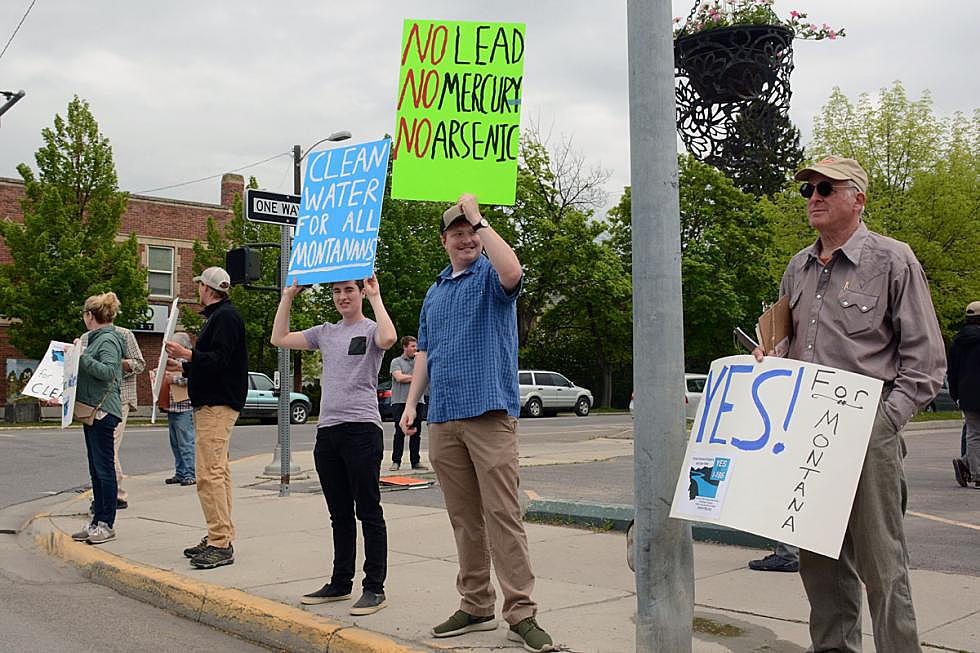
Brewing, fishing businesses join rally in Missoula to support I-186 mining initiative
Several business owners rallied in Missoula on Thursday to support a proposed ballot initiative that would require new mines in Montana to have a reclamation plan in place before receiving a permit and beginning operations.
Doing so, supporters say, will save taxpayers millions of dollars in cleanup costs and avoid the environmental damage left by past mining operations.
“It's been widely recognized that we're spending millions and millions of taxpayer dollars every single year to mitigate some of these environmental disasters that are the result of poor planning in the mining industry,” said Jeff Lukas, a member of the I-186, YES for Responsible Mining campaign. “The Legislature hasn't done anything about it, so a citizen's initiative is a powerful tool for the public to use to improve the quality of life in Montana.”
Last month, sponsors of the proposed initiative withdrew their original filing and introduced new language to make clear that existing mines would be exempt from the measure.
The effort needs 25,000 signatures to qualify for the November ballot, though Lukas said backers look to secure 40,000 signatures. To date, they've collected 12,500.
“It's really good, because we're running on a seven-week campaign instead of the traditional 12 weeks,” Lukas said. “We've exceeded our goals so far.”
According to a 1995 report from the Montana Department of Environmental Quality, the state has 276 abandoned mines that present a significant risk for water pollution. A more recent analysis conducted by Trout Unlimited found 9,380 miles of streams that are listed as impaired for heavy metals or acidity.
Supporters, including Taylor Scott, said changes are needed to protect Montana's outdoor economy and the pristine environment that fuels it.
“I spent so many birthdays on the Smith River, and I wouldn't trade all the money in the world for the memories I spent with my family there,” said Scott, owner of the Missoulian Angler Fly Shop. “The Clark Fork River has been screwed up for nearly a century. It would have been another blue-ribbon trout stream, but now there are places where it's just void of life.”
Those behind the initiative point to some of the state's most notable mining disasters and the costs the public has borne to clean them up.
That includes the Zortman-Landusky Mine, which initiative supporters say has cost taxpayers $26 million to date, with another $3 million each year for ongoing water treatment. More than $13 million in taxpayer funds have been spent for cleanup and ongoing water treatment at the Beal Mine.
“My primary interest is to keep Montana the way it was when I grew up and how it is now for my kids and grandkids and future generations,” said Suzy Rizza, co-owner of the KettleHouse Brewery. “Personally, it's a cause that's close to my heart.”
While their campaign gains momentum, a second group has formed to counter it, and its supporters have filed an initiative with the Secretary of State to place Stop I-186 on the ballot.
That effort is being headed by the former head of the Montana Petroleum Association. Supporters of that campaign have said that if I-186 passes, it would effectively end new mining in the state and cost Montana more than $40 million in tax revenue.
But supporters of stronger reclamation laws counter by saying the state's outdoor economy far exceeds that of the mining industry, generating $7.1 billion annually while employing 71,000 people.
“The business is one thing, but it's more than just a business,” said Scott. “I've been on these rivers since I was two years old, and it goes a lot further than any money goes.”
